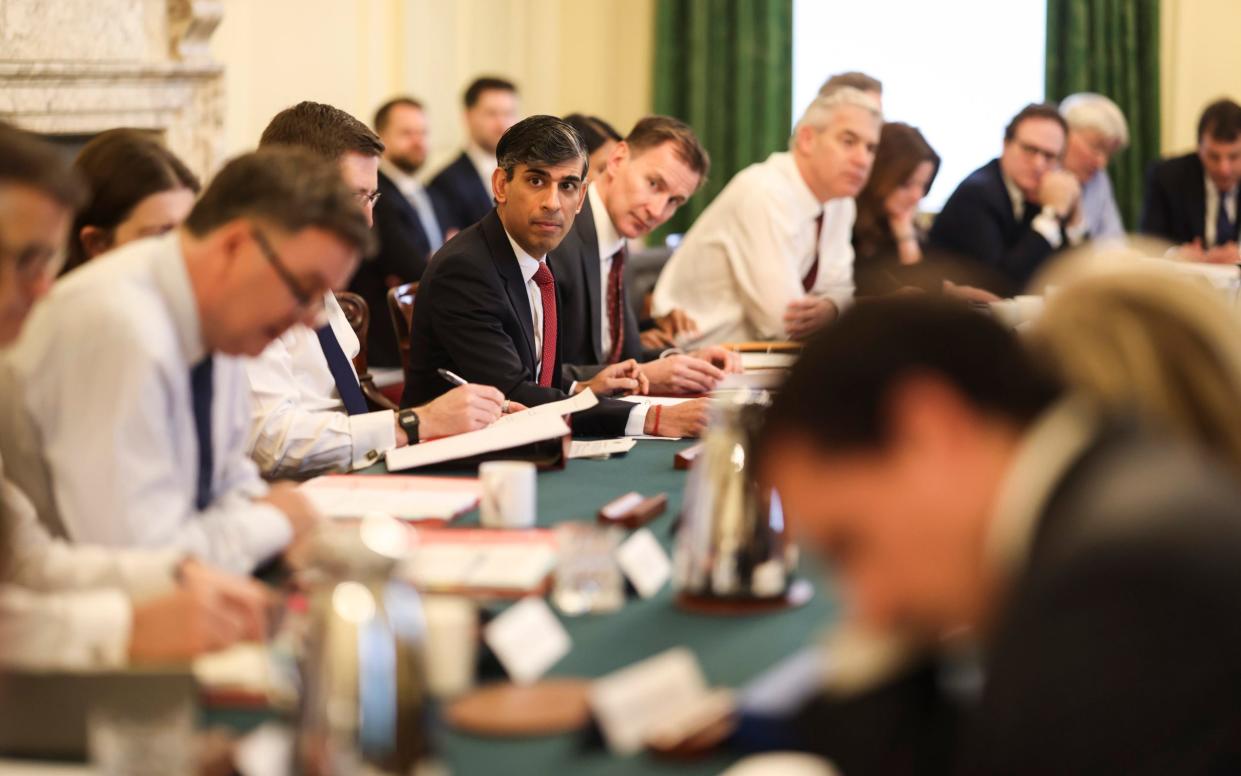Tories on course for worse election wipeout than 1997

The Conservative Party is on course to suffer a general election wipeout worse than that of 1997, according to a major new poll that suggests Labour could secure a 154-seat majority.
The YouGov survey of 18,761 people predicted that Rishi Sunak would suffer the Tories’ worst general election result on record, while Sir Keir Starmer’s Labour would win a majority almost twice the size of Boris Johnson’s in 2019.
The poll, carried out between March 7 and 27, showed that Labour would secure 403 seats if a contest were held tomorrow.
The Tories would be a distant second with just 155 seats, worse than the 165 they secured under Sir John Major in 1997 as Sir Tony Blair swept to power in a Labour landslide.
Election data from the House of Commons Library, which date back to 1918, show this would be the worst Conservative performance on record. Such a showing would also compare unfavourably with the 2001 election, when the Tories also picked up 165 seats.
The poll is likely to raise further questions in Tory ranks about Mr Sunak’s political future, with just months remaining until the general election is expected to take place.
It is a worse showing for the Tories than the last YouGov poll of the same kind in January, conducted for The Telegraph on behalf of the Conservative Britain Alliance, which predicted that Mr Sunak’s party would win 169 seats – a better showing than 1997 – while putting Labour on 385.
On Wednesday, Downing Street insisted the latest poll showed that the next election was a clear choice between Mr Sunak and Sir Keir and warned against votes for Reform UK.
Although the projections show that Richard Tice’s Right-wing party is not on track to win any seats, it is set to win 12 per cent of the vote.
Reform is also predicted to leapfrog the Conservatives into second in 36 constituencies, all of which are set to elect a Labour MP. Many of these are Red Wall seats in the North and Midlands that were won by the Tories for the first time in 2019.
Lee Anderson, the only Reform MP and a one-time Conservative Party deputy chairman, is projected to lose his Ashfield constituency to Labour but beat his former party into third place.
A Government source said: “This just goes to show that a vote for Reform is a vote for Keir Starmer. Over the next few months, minds will focus on the choice between our plan to keep driving down inflation, grow the economy and build a brighter future, and Keir Starmer, who has no plan and would take us back to square one.”
The poll also showed that the Liberal Democrats are set for a “significant parliamentary comeback”, also picking up 12 per cent of the vote.
The first-past-the-post system and fading Tory fortunes means this would equate to 49 seats, including the Godalming and Ash constituency of Jeremy Hunt, the Chancellor.
Mr Hunt would therefore become the most high-profile casualty of the next election in a “Portillo moment” akin to Michael Portillo, the then defence secretary, losing his seat in 1997.
Penny Mordaunt, the Commons Leader – widely touted as a potential successor to Mr Sunak – is projected to lose in Portsmouth North, where she trails the Labour candidate by four points.
Michelle Donelan, the Science Secretary, Sir Iain Duncan Smith, a former Conservative leader, and Sir Jacob Rees-Mogg, a former business secretary, are predicted to lose to Labour.
The sample size used by YouGov enabled it to break down results by the constituencies in which the election will be fought using its Multi-Level Regression and Poststratification method, which successfully forecast the 2017 and 2019 UK elections and more recently predicted votes in Australia and Spain.
YouGov projects that Labour will be the largest party in Scotland, winning 28 seats north of the border compared to the SNP’s 19, with the Conservatives and Liberal Democrats winning five apiece.



